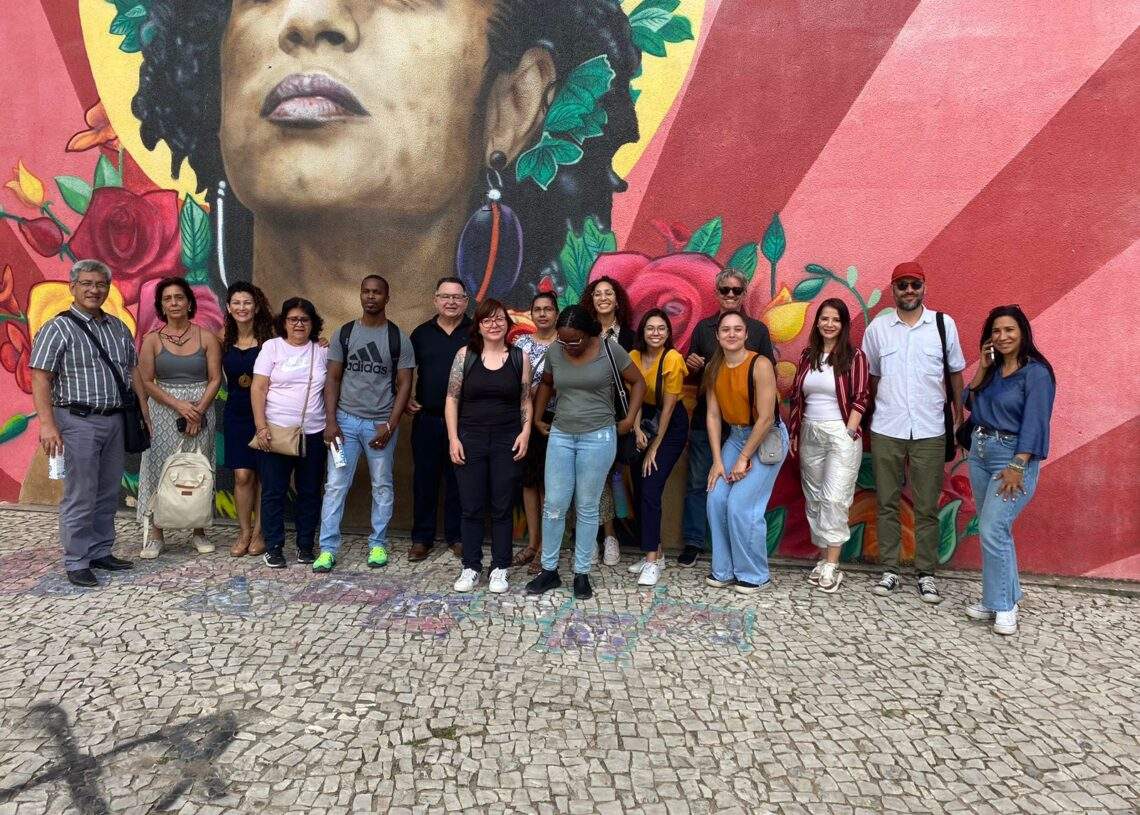During the week of 4-10 August, 15 representatives of 10 public administrations from Latin America and the Caribbean travelled to Sao Paulo and Fortaleza (Brazil) to learn first-hand about good practices in community care for people with problematic drug use, in situations of poverty and social exclusion.
In the study visit, promoted by COPOLAD III, to Sao Paulo and Fortaleza, participants from Belize, Colombia, Costa Rica, Jamaica, Peru, Dominican Republic, Uruguay, Suriname, Trinidad and Tobago and Brazil, had the opportunity to learn and train about the the territorialisation of care services with a focus on gender and economic inclusion of people with problematic drug use.
COPOLAD III focuses on developing systems and interventions that support the most vulnerable population groups with the greatest difficulties in accessing care services. Emphasis is placed on addressing the social vulnerabilities linked to problematic drug use in the territory, especially in areas of high vulnerability. In this sense, work is being carried out along complementary lines, supporting multidimensional intervention models in areas of high vulnerability and the scaling up of these community intervention models to public policies.
Based on the interest shown by 12 countries in Latin America and the Caribbean, support was provided to public servants to train them in community treatment in all its dimensions. A training and advocacy itinerary has been carried out the last 2 years at the regional level, through working groups, training and support guides. At the national level, work is being carried out with these twelve countries in the development of intervention proposals following the Community Treatment-ECO2 model in 12 countries. This accompaniment is carried out in two sequential phases: 1) Pilot phase, which starts with a diagnosis of the situation, a mapping of the territory and the formulation of a detailed intervention strategy; 2) Phase of implementation of the proposal in each country, with the support of technical assistance from COPOLAD III.
Training itinerary
The countries committed to the territorial line of action have the possibility of participating in exchange and training internships in other countries, as was the case in Brazil and Colombia last year. The participants in the internships visit the experiences and good practices in the field in a training-action process. The visits are accompanied by government institutions and social organisations that receive the interns and promote action-training workshops in the communities and spaces visited.
In São Paulo, they visited Casa Chama, Coletivo Tem Sentimento (Cracolândia), Conexão Musas, (CEFOPEA). They also went to vulnerable territories in São Paulo and attended a workshop on economic inclusion and networks. In Fortaleza, the internship focused on community social experiences such as the Mandacaru Community School – Casa da Sopa, the Medicines Reference Centre, the Acojer Project, the Believe Pilot Project (Acredite), and a visit to the kitchen of the Ceará sem Fome (Ceará without Hunger) project in Oitão Preto. The study visit included getting to know the work with Banco Palmas, the first Brazilian community bank that was born in the Conjunto Palmeiras community with the community currency and working with local enterprises.






